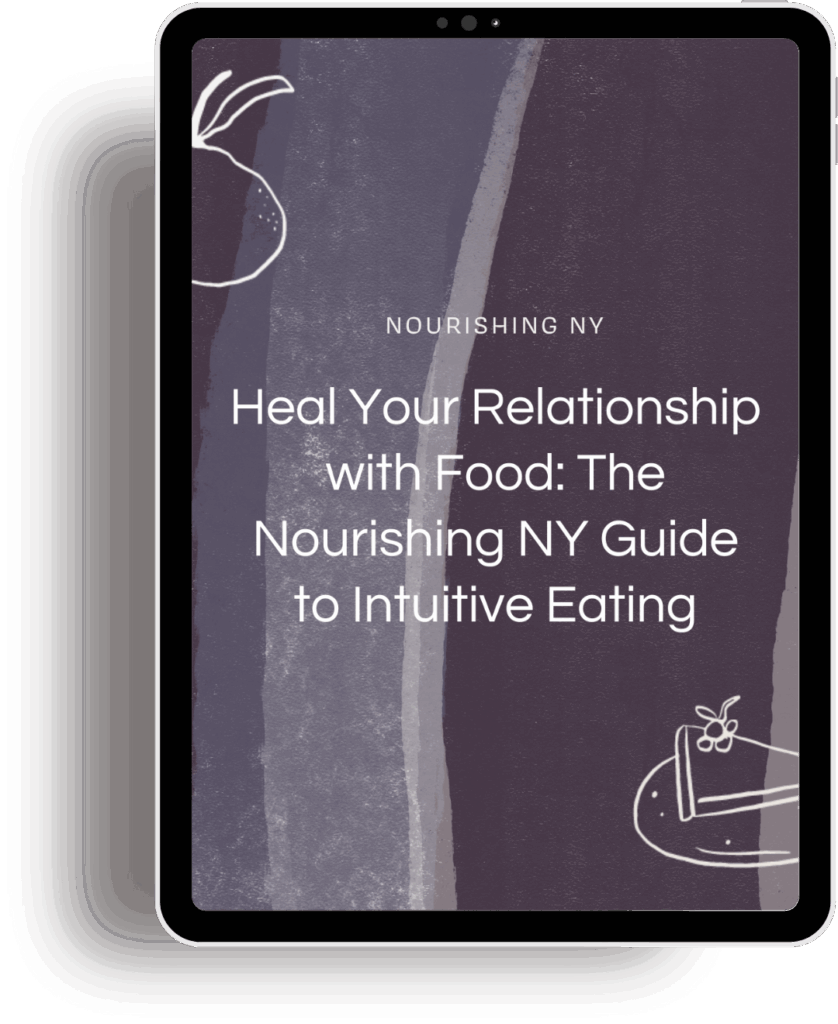Summer is rapidly approaching, and that means so are all the ads to get “bikini body” ready. Every year, weight loss and fitness companies target the vulnerability that comes with summertime and use it to promote their newest products or diets. Diet culture promotes quick fixes with 30-day detox cleanses or 10-minute abs, but the reality is that following these restrictive diets or programs may work in the short term, but they are not sustainable lifestyle choices. The rigidity of these programs takes all the joy out of food and movement.
Exercise can be very beneficial to your health, but it’s going to be even MORE beneficial when done in a joyful and empowering way. Exercise is about MUCH MORE than burning calories and fat.
Try practicing body respect instead of repeating the same pattern of yo-yo dieting and rigorous workout programs this summer. Prepare for this summer by practicing respect for your body and appreciating what it does for you everyday.
UNFOLLOW Diet Culture
Social media has cultivated a certain type of body ideal and promoted thinness values through media, fashion, and the diet industry. Social media gives everyone an equal voice, allowing unqualified individuals such as celebrities to communicate directly with the public to influence their behavior. Nutrition has become a trendy topic across social media, with many influencers being paid to promote “health” products. A majority (53%) of young people used social media to look for health-related material such as nutrition advice, workout inspiration, or body image ideals. These common topics influence people to want to make changes in their bodies. Social media engagement or exposure to image-related content can negatively impact body image and food choices.
This summer, stop following any social media accounts or blogs that promote dieting, detoxes, weight loss, or any accounts that make you uncomfortable in your body. By unfollowing the accounts, you are unfollowing diet culture. As you remove accounts centered on these principles, it also adjusts suggested or recommended content, further reducing your exposure to diet culture. Instead, switch these accounts for ones that remind you to enjoy food and love your body.
Summer Style
Prepare for summer by investing in a wardrobe that fits your body NOW! Don’t purchase summer shorts that are too tight, thinking that you’ll be able to fit into them in a couple of months. Don’t try to squeeze into a dress you wore three years ago and leave yourself feeling guilty when it doesn’t fit. Pick clothes that fit comfortably even after you have enjoyed a meal. As you shop for new clothes, pick an outfit based on style, not tag size. You do not need to fit into the clothes you wore in high school or college to be confident in your clothes.
Toss the scale and the tracker
Many people enter the summer months with a goal weight in mind—this summer, focus on improving your health, no matter what number the scale reads. For some, the number on the scale can make or break their entire day. If this happens to be you, you are not alone.
Challenge yourself to stop focusing on weight and shift to adopting sustainable nutrition and exercise habits. If you are feeling extra bold, throw out the scale altogether! Focus on practicing healthier habits and being consistent. Make changes that you can keep and strive for non-scale victories. Maybe your goal is to drink an extra glass of water or have the energy to do an activity you enjoy. Many goals revolve around numbers on the scale or calories eaten or burned. Shift the focus away from numbers.
Fitness tracking technology tends to reduce health to numbers which creates an obsession with burning calories and taking steps. Numbers can be triggering. If you find yourself obsessing over meeting your step goals for the day. It may be time to ditch the fitness tracker. If you are focusing on reaching a certain number of steps or burning a certain amount of calories each day, you won’t be listening to or recognizing your body’s signals.
Incorporate gentle movement into your routine
It can be hard to practice joyful movement and enjoy food if you still feel like you need to change your body. Punishing yourself with intense exercise is not respecting your body. If you don’t enjoy running on the treadmill or HIIT classes, switch them out for movement you enjoy. Make sure your body is comfortable and treat it with kindness. When exercising, set goals that do not revolve around looking good or losing weight. Focus on how you feel while exercising and set achievable goals for you. Maybe you want to become more flexible, and your goal is to do a split, or perhaps you want to run a 10K. Exercise and physical movement have many benefits, including reduced stress, increased energy, increased self-esteem, reduced cardiac risks, and boosted mood.
Focus on intuitive exercise. Exercise relieves stress, improves memory, helps you sleep better, and boosts your overall mood. Exercise releases endorphins in the brain and physical activity helps to relax the muscles and relieve tension in the body. This combination relieves tension and stress. When it becomes a habit, it can improve your self-esteem by fostering a sense of self-worth and making you feel strong and powerful. It is also a great way to relieve stress and anxiety which is great for mental health. Exercise does not need to be strenuous or structured to reap the benefits of improved mood.
Eat the foods you enjoy
This summer try incorporating foods that satisfy you and nourish you. Choose foods based on what you think will taste good not based on calorie content. Your vacation will be much more relaxing if you aren’t worried about eating “clean” or sticking to a diet. All foods fit, so enjoy the foods you want.
The common misconception about summer is that you need a diet to look good. It is simply not true. You do not need to go to extremes like cutting out food groups, excessively exercising, or feeling guilty about yourself until you look different. Eat the foods you want and appreciate the opportunities to nourish your body. Remind yourself even if you eat more than you anticipated, you do not need to exercise to compensate. You do not need to look a certain way to wear a swimsuit.
Do you have a support system?
As you prepare for this summer, consider your support system. Do you have friends and family who lift you up? It is also essential to have friends and family who support your efforts to ditch diet culture. Surround yourself with people that do not body shame.
Be body positive
For most people, it is a natural tendency to want to be better, however, this desire can result in severe mental health consequences when it comes to physical appearances. If you are being shamed for your body or your appearance, stick up for yourself in a positive and healthy way. Explain why what the person said was hurtful. It is important to practice self-love and try to not let negative comments bother you. If you receive hateful comments, fight them with compassion. The first step in dealing with body-shaming is body positivity. It is important to be appreciative of your body.
Accepting your appearance is important for your mental health. Do not hide or isolate yourself if someone is negative. Isolating may be easier, but it is not as enjoyable. Try not to worry about what people will think or will say when you are out. Chances are no one will say anything about your body. Take control of social media. Unfollow body shamers and fill your page with body-positive accounts.
Live in the moment
When dieting, we shift all of our focus to weight and calories instead of the many other health indicators. Incorporating healthy lifestyle behaviors like movement you enjoy, intuitive eating practices, and mindfulness are ways that we are going to feel more beach-ready than any diet brought to you by diet culture. As you prepare for this summer, focus on enjoying your vacation and the quality time you are spending with loved ones rather than picture taking. It is great to document the memories you are making, but not at the cost of your self-esteem and the enjoyment of the trip itself.
Sources:
Ayton A, Ibrahim A. The Western diet: a blind spot of eating disorder research? Nutrition Reviews July 2020. 78:7(579–596) DOI:https://doi.org/10.1093/nutrit/nuz089
De Choudhury M, Sharma S, Kiciman E. Characterizing Dietary Choices, Nutrition, and Language in Food Deserts via Social Media. ACM 2016. 1157–1170. DOI:https://doi.org/10.1145/2818048.2819956
Goodyear VA, Armour KM, Wood H. Young people and their engagement with health-related social media: new perspectives. Sport, Education and Society 2019. 24:7 (673-688) DOI: 10.1080/13573322.2017.1423464
Hill AJ. Pre-Adolescent Dieting: Implications for Eating Disorders, International Review of Psychiatry 2009. 5:1(87-100). DOI: 10.3109/09540269309028297
NEDA. Statistics and research on Eating Disorders. 2022. https://www.nationaleatingdisorders.org/statistics-research-eating-disorders. Accessed 26 April 2022.
Mervat N. Eating disorders across cultures. Psychiatry 2009. 8:9 (347-350). ISSN 1476-1793. DOI: https://doi.org/10.1016/j.mppsy.2009.06.009.



